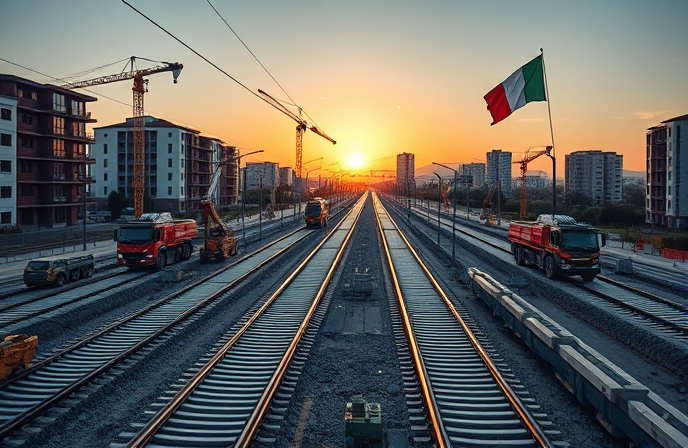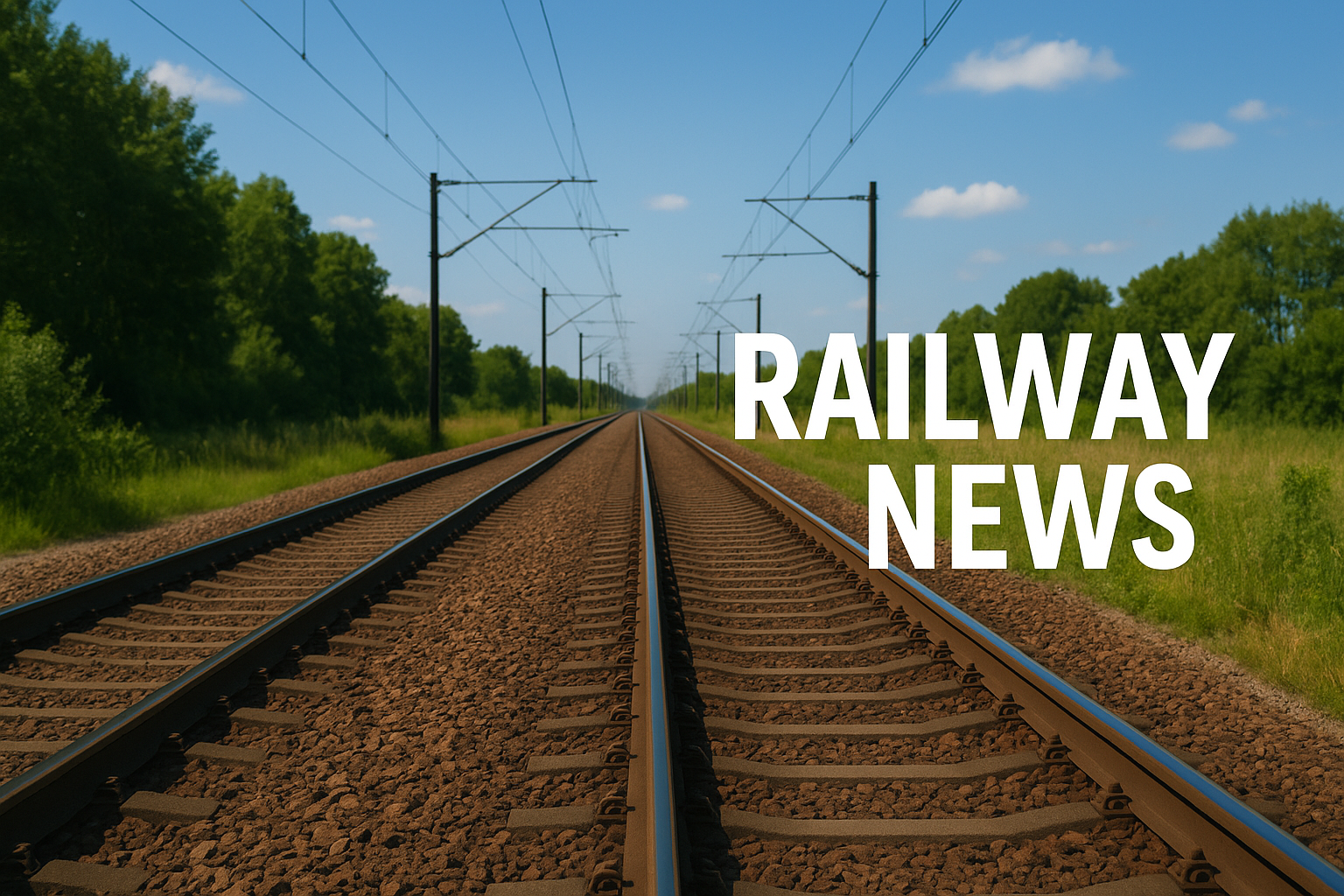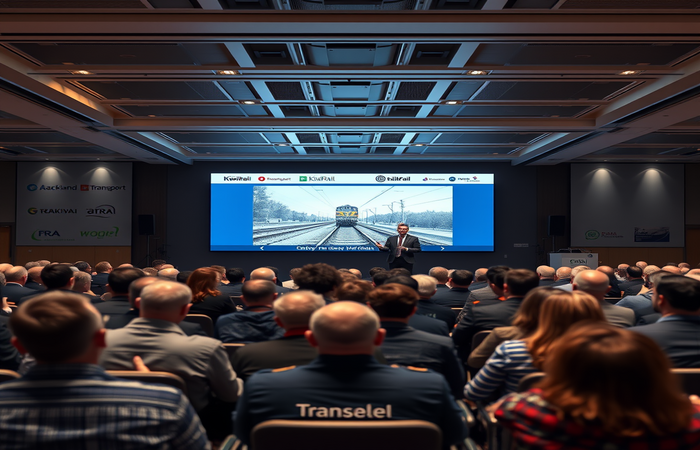Brescia T2 Tram: Alstom, Hitachi Rail & Rail Infrastructure Upgrade
Brescia gets €326M tramway, boosting Italian railway sector. New T2 line connects city areas, improving public transport.

Brescia Gears Up for Modern Mobility: €326M Tramway Contract Awarded
The city of Brescia, Italy, is set to transform its public transportation network with the awarding of a substantial €326 million contract for the construction of a new tramway line. Announced on June 19, 2025, the project, awarded by Brescia Mobilità, will see a consortium led by Manelli Impresa, in partnership with Hitachi Rail and Alstom, deliver a state-of-the-art, 11.3-kilometer double-track tramway. This new line, designated T2, will connect the southwest and northwest areas of Brescia, improving connectivity and reducing reliance on private vehicles. This article will delve into the key aspects of this significant project, from its engineering and technological advancements to its expected impact on urban mobility and the broader industry implications for sustainable transportation solutions.
Infrastructure and Civil Works: The Manelli Impresa Contribution
Manelli Impresa, as the lead partner in the Temporary Grouping of Companies (RTI) consortium, will undertake the critical civil infrastructure and line works for the T2 tramway. This encompasses the final design, civil engineering, and safety coordination throughout the project’s design phase. The scope of work includes the construction of the double-track route, ensuring its seamless integration with the urban landscape. The company’s significant investment in this project, approximately €161 million, highlights its commitment to developing efficient and reliable public transportation solutions. The new tramway, designed to traverse both historic and redeveloping zones, will represent a considerable enhancement to the quality of urban spaces and align with regional government plans.
Advanced Signaling and Electrification: Alstom’s Role
Alstom will be responsible for the design and implementation of crucial systems and infrastructure components, including switchgear, electric traction, overhead contact lines (OHL), ground signalling, street lighting, and traffic light systems. The contract value for Alstom’s work is approximately €88 million. Alstom’s System & Infrastructure team at its Rome headquarters will oversee the project. The electric traction components will be sourced from Alstom’s Valmadrera site. A key element is the incorporation of the Spiroll system, which automates the tensioning of OHL wires, thus optimizing the performance and reliability of the power supply. This comprehensive integration of systems highlights Alstom’s expertise in providing a complete, cutting-edge solution for modern tramway operations.
Rolling Stock and Passenger Experience: Hitachi Rail’s Innovative Trams
Hitachi Rail will be delivering 18 new streetcars for the T2 line and providing essential telecommunication and signalling equipment, at a value of approximately €77 million. Manufactured at Hitachi Rail’s Reggio Calabria facility, the trams will feature advanced technologies, including an Advanced Driver Assistant System (ADAS) with anti-collision capabilities, designed to enhance safety. These next-generation trams will incorporate vibration reduction and noise minimization technologies to ensure a smoother and quieter passenger experience. Offering seating for 52 passengers, the tram cars are designed to accommodate a total capacity of 216, utilizing lightweight, 98% recyclable materials, and employing smart air conditioning systems, which optimize energy consumption based on passenger load. This commitment to sustainability and passenger comfort underscores Hitachi Rail’s focus on providing innovative and environmentally friendly public transportation options.
Operational Efficiency and Sustainability: Key Project Objectives
The Brescia T2 tramway is designed for enhanced efficiency and sustainability. Approximately 72% of the route will be on dedicated lanes to ensure uninterrupted traffic flow, facilitating faster transit times. The tramway will be powered predominantly by an OHL system, extending for roughly 8.2 kilometers, with battery-powered sections covering approximately 3.1 kilometers to mitigate environmental impact. The implementation of energy-efficient systems extends to the trams themselves, which will utilize braking energy recovery and innovative Eco-Drive algorithms during braking and operation, aiming to reduce energy consumption by 15-20%. The overall project will connect Pendolina and Fiera stations, reinforcing the region’s ambition to provide a comprehensive and integrated urban mobility solution.
Conclusion
The Brescia T2 tramway project represents a major step forward in modernizing urban transportation infrastructure. The collaboration between Manelli Impresa, Hitachi Rail, and Alstom is a strong model for how to create a high-quality, sustainable urban transport system. With its focus on advanced technology, passenger comfort, and environmental responsibility, the project sets a high bar for urban rail projects globally. The integration of dedicated lanes, advanced signalling, and energy-efficient rolling stock demonstrates a forward-thinking approach to creating a transport network that is efficient, reliable, and environmentally friendly. The project is expected to improve connectivity, reduce traffic congestion, and support the broader objectives of sustainable urban development.
The successful execution of the T2 tramway will likely stimulate further investment in sustainable transportation projects within Italy and internationally. The project is also aligned with broader industry trends, including the adoption of intelligent transport systems and the development of environmentally friendly technologies. The results of the project will provide critical insights into the potential of integrated urban mobility and its impact on the quality of life and sustainability within the Brescia community and beyond.
Company Summary
Manelli Impresa is an Italian construction company specializing in civil engineering and infrastructure projects, with a significant portfolio of railway construction and rehabilitation projects throughout Italy. They are known for their expertise in managing large-scale projects and their commitment to sustainable development practices. Alstom is a global leader in the rail transport sector, providing integrated systems, including trains, infrastructure, signalling, and services. Alstom’s innovations in traction, signalling, and rolling stock design make them a key player in the development of modern, efficient, and sustainable railway networks. Hitachi Rail, a global company operating in rail transport, offers advanced railway systems and innovative solutions for passengers, railway operations, and rolling stock. The firm’s focus on technology and sustainability is showcased throughout its tram, train and related infrastructure projects worldwide.



